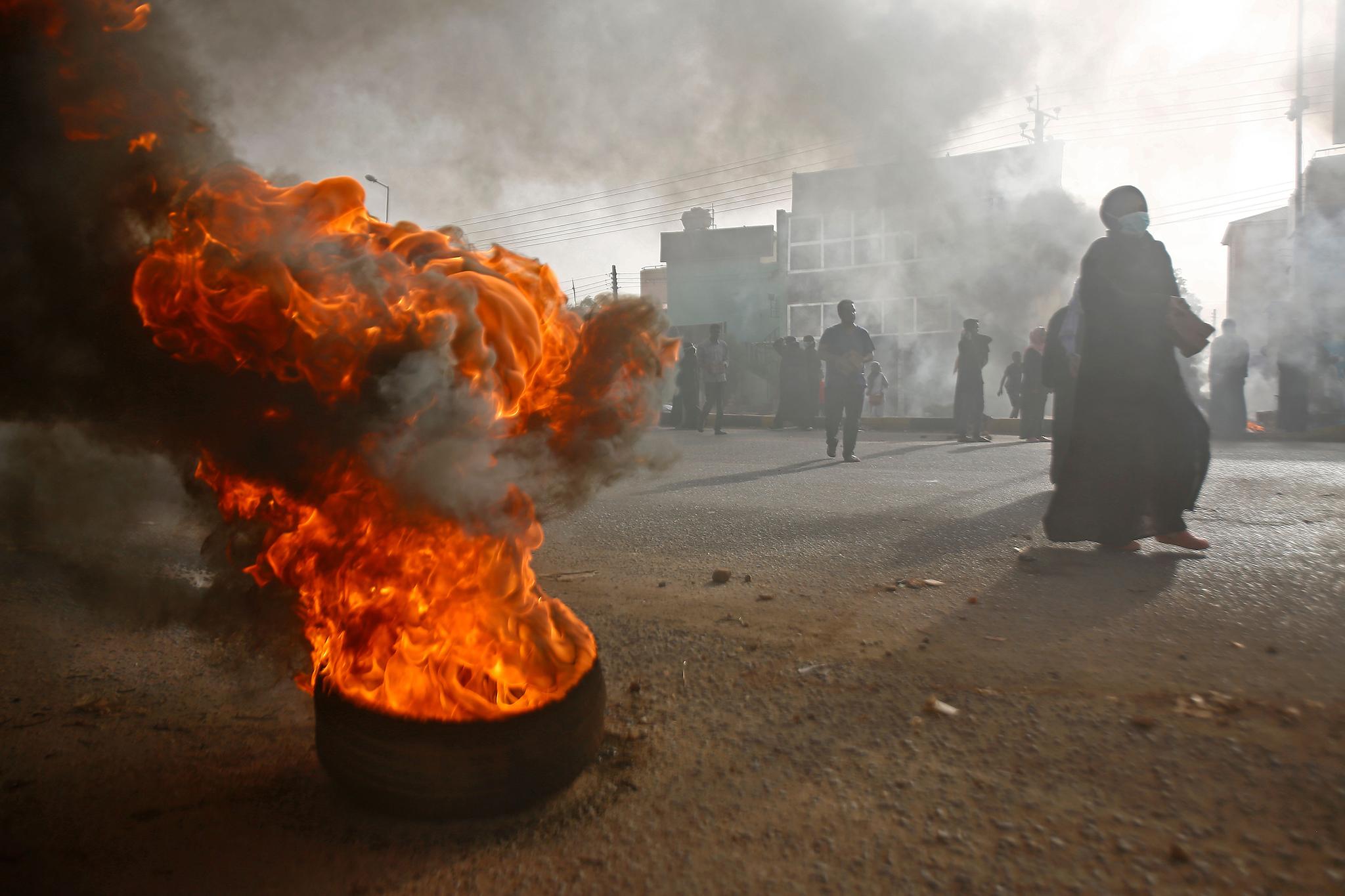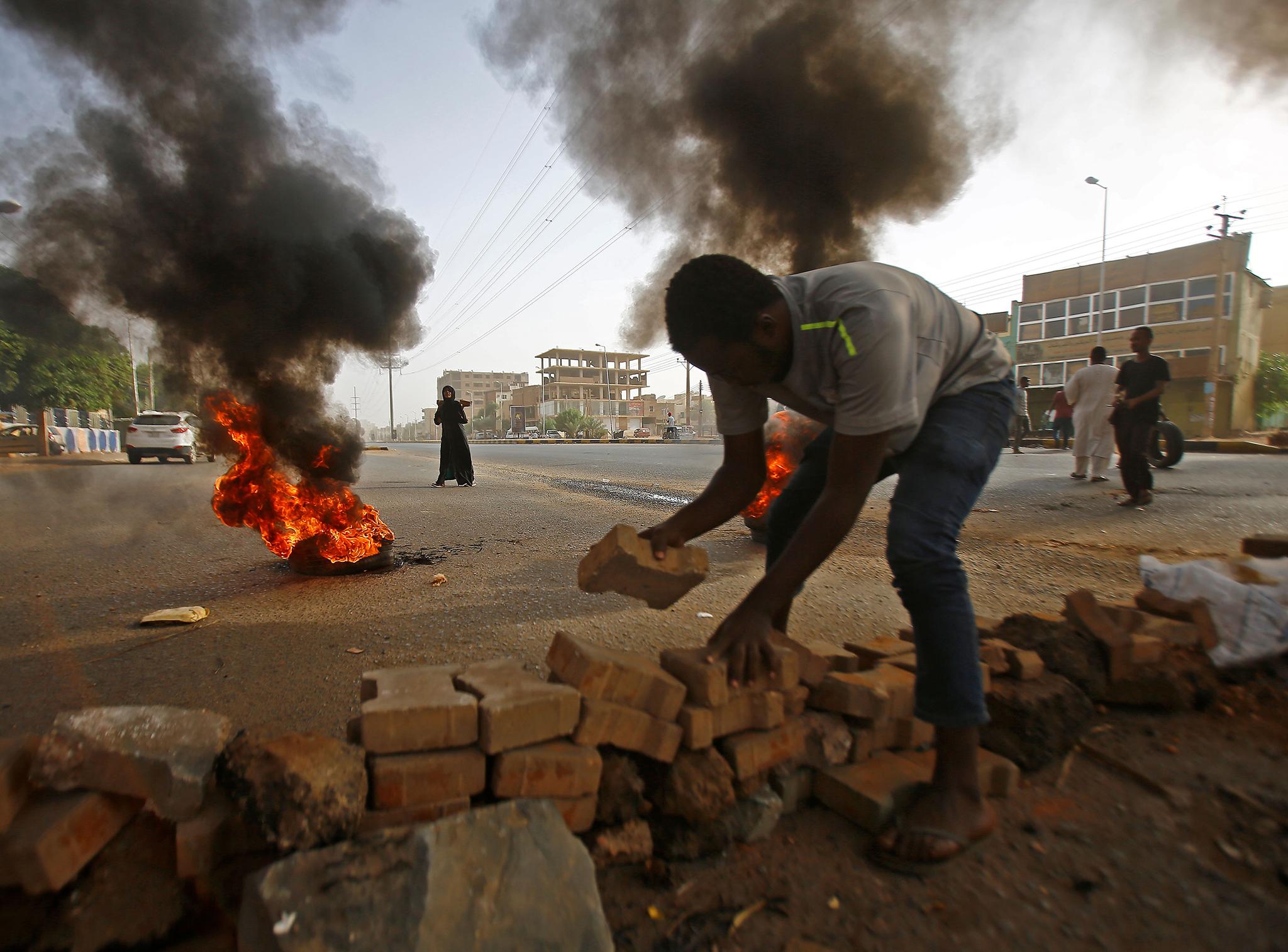Sudan protests: Children killed and sexually assaulted in violent clashes, say rights groups
Reports come as military and opposition agree to resume talks
At least 19 children are among the dozens killed in this month’s violent crackdown on civilian protesters in Sudan’s capital, the U.N. said, in acts of violence condemned by rights groups as 'barbaric".
Meanwhile, the military and opposition groups agreed to restart talks, as strikes were called off.
Despite a telecommunications blackout in much of the country, there have been reports of excessive violence against protesters at the hands of security forces, including the detention and sexual abuse of children.
Unicef’s executive director Henrietta Fore said in a statement she was “gravely concerned” at the impact of the ongoing violence on the Sudanese children.
She said since June 3 at least 19 children had been reportedly killed and another 49 injured, with many more still in danger amidst the violent clashes.
“We have received information that children are being detained, recruited to join the fighting and sexually abused.
“Schools, hospitals and health centres have been targeted, looted and destroyed. Health workers have been attacked simply for doing their job.”
She said parents were fearful of letting their children out of the house, and water, food and medicine shortages were putting children’s health and wellbeing at risk.
The latest unrest escalated when a raid on protesters sitting outside Khartoum's Defence Ministry saw dozens killed and hundreds injured.
Witnesses have described seeing government paramilitaries, the Rapid Support Forces (RSF), take the lead in the violent dispersal of the civilians.
Opposition activists have also told The Independent that the RSF has been hiding bodies of protesters dumped in the Nile and has raped "dozens" of female doctors.
The latest clash has dealt a big setback to hopes of a transition towards democratic elections following the overthrow of veteran leader Omar al-Bashir earlier in April.
“Children throughout Sudan are already bearing the brunt of decades of conflict, chronic underdevelopment and poor governance. The current violence is making a critical situation even worse.”

According to the opposition-linked Central Committee of Sudan Doctors (CCSD) at least 188 have been killed since June 3, many of whom were shot or severely beaten to death by members of the RSF militia.
The government confirmed 61 deaths.
Amnesty International secretary general Kumi Naidoo said what had been witnessed in the days since the violent crack-down was “horrific and barbaric”.
“The senseless killing of protesters must be stopped immediately, and those responsible for the bloodbath, including at command level, must be held fully accountable for their dreadful actions.”
In a statement on Twitter British ambassador in Sudan, Irfan Siddiq, said a political agreement was needed to put an end to the violence.
“If there weren't strong enough arguments for ending the violence in Sudan, the killing of 19 children in the last nine days should make all those responsible for the ongoing violence think long and hard about their actions.”
On Tuesday, an Ethiopian envoy said Sudan's military and opposition groups agreed to resume talks on the formation of a transitional council, as an opposition alliance said it was suspending its campaign of civil disobedience and strikes.
Sudan's Transitional Military Council also agreed to release political prisoners as a confidence-building measure, special envoy Mahmoud Dirir told reporters in Khartoum.

The military council has been bolstered by support from Saudi Arabia, the United Arab Emirates and Egypt.
The UAE's Minister of State for Foreign Affairs said on Tuesday his country was in contact with both sides and was seeking "a smooth organised political transition".
The steps appeared to show a softening of positions after talks between the two sides collapsed following the violent dispersal of the protest sit-in on June 3.
Stability in the nation of 40 million is crucial for a volatile region struggling with conflict and insurgencies from the Horn of Africa to Egypt and Libya.
Additional reporting by Reuters
Join our commenting forum
Join thought-provoking conversations, follow other Independent readers and see their replies
Comments
Bookmark popover
Removed from bookmarks